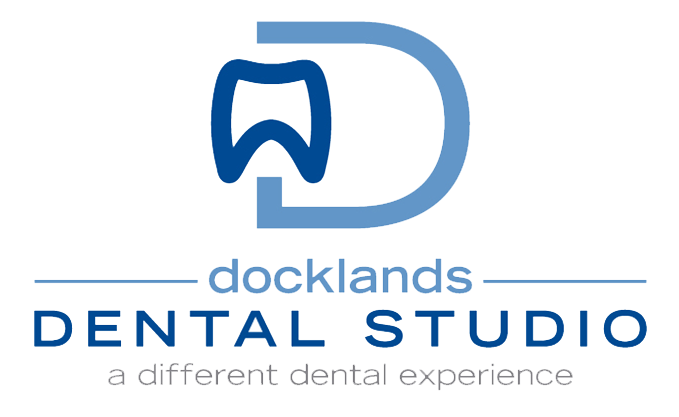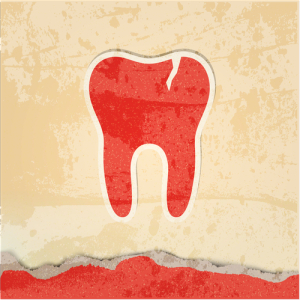Let’s face it: many people put off going to the dentist until it becomes absolutely necessary. The Australian Institute of Health and Wellbeing reports that three in ten adults have untreated tooth decay, while one in seven people over the age of fifteen suffered from toothache in the past year. Ideally, you should come in for a cleaning and examination at least twice per year so we can catch these types of dental issues before they become more complex or difficult to treat. However, if you’ve let your oral heath care fall by the wayside or experience a dental emergency, the team at Docklands Dental Studio will be here to help. In the following blog, we list the top five signs that you need to call the dentist now. Taking these symptoms seriously can help you save your smile.
1. Your gums bleed when you brush or floss.
Some people believe it’s normal for their gums to bleed when they clean their teeth, but this isn’t true. Having bleeding gums is a telltale sign of gingivitis, the first stage of gum disease. The same bacteria that cause cavities can accumulate beneath your gums, creating an infection. Patients with gingivitis commonly experience bleeding, as well as inflammation, gum recession, halitosis (bad breath), redness, and sensitivity. Left untreated, gingivitis can progress to periodontitis, a more advanced infection that can lead to tooth loss or even more serious issues such as cardiovascular disease. If your gums bleed, you should contact us immediately for a consultation. Dr. Pia Oparkcharoen can help diagnose your condition and recommend an appropriate treatment to remedy your gum disease.
2. You’ve had oral sores for weeks.
Having a canker sore for a few days every now and then isn’t much cause for concern, but if you have persistent oral sores that don’t seem to be healing, you should contact Docklands Dental Studio for assistance. These lesions could be symptoms of a fungal infection such as oral thrush, leukoplakia (abnormal cell development, usually due to tobacco use), or even oral cancer. Dr. Oparkcharoen can assess your tissue to determine if you suffer from a periodontal problem and perform any necessary procedures to restore your oral health.
3. Cold or sugary foods or beverages make your mouth hurt.
Do you ever feel a sharp, zinging sensation or dull ache when biting into certain foods or sipping particular drinks? This could mean you have a cracked tooth. Most people assume that they would be able to clearly tell if they’d fractured one of their pearly whites, but cracks in your enamel can be quite thin and nearly invisible to the naked eye. If you do have a cracked tooth, it’s important to get this condition handled quickly. The opening in your enamel could allow bacteria to infect your tooth root or cause other oral health issues. If you notice strange sensations while eating or drinking, Dr. Oparkcharoen can examine your enamel for signs of fracture. Depending on the severity of your cracked tooth, she may stabilize it with a metal band, place an overlay restoration, perform root canal therapy, or extract it.
4. Your mouth feels dry all the time.
Xerostomia, or dry mouth, is a more serious condition than it may seem. Your spit is your body’s first defense against oral bacteria, since your saliva acts as a natural mouthwash (complete with enzymes that break down debris and fight decay). Dehydration, certain medications, hereditary issues, and other conditions can lead to poor saliva flow. Since this issue could raise your risk for decay or gum disease. Dr. Oparkcharoen can provide medications for xerostomia and recommend lifestyle changes that could help you better hydrate your mouth.
5. You consistently wake up with a headache.
You might not associate your morning headache with dental issues, but these two are often closely linked. You may grind your teeth at night without realizing it, putting undue pressure on your surrounding facial tissue. In addition to headaches, bruxism can wear down your enamel and increase your risks for other oral health issues. Dr. Oparkcharoen can assess your teeth and discuss your symptoms with you to determine if you suffer from bruxism. To prevent you from grinding your teeth, we may recommend that you wear a night guard, an oral appliance that sits between your upper and lower teeth to prevent them from grinding against each other.
Do You Need to Give Us a Call?
Are you experiencing any of the above? Spotting and treating gingivitis, a cracked tooth, bruxism, and other oral health issues early on could save you time, money, hassle, and discomfort in the long-term. Contact Docklands Dental Studio today to find out more or schedule an appointment.

